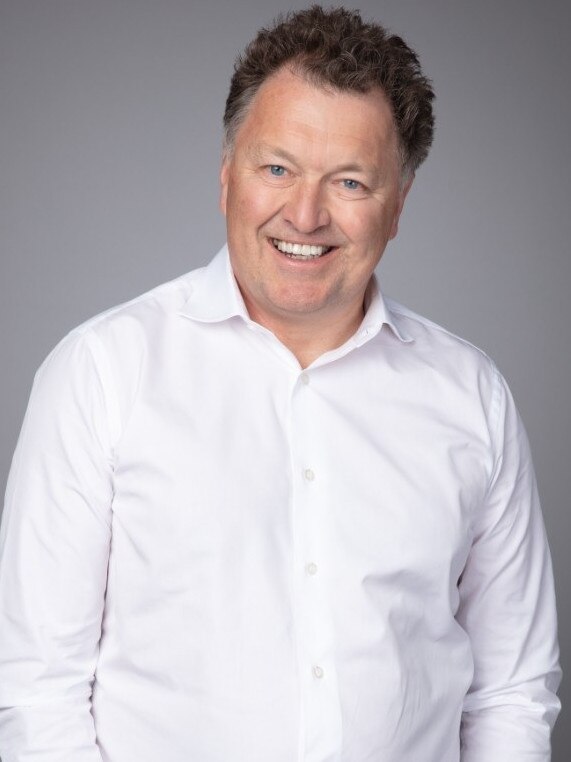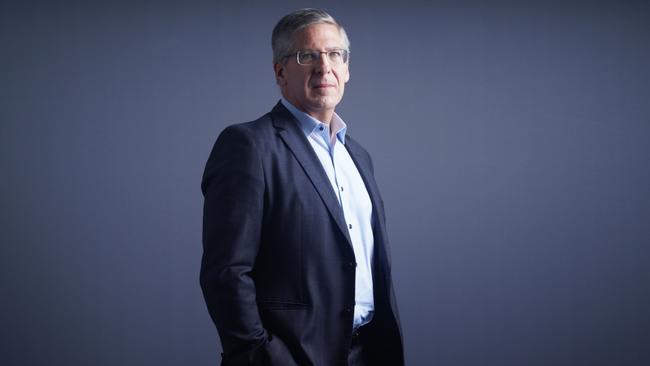New PwC boss insists culture problem is local
The first time Kevin Burrowes, the formerly Singapore-based partner chosen to run PwC Australia, heard anything about the scandal engulfing the firm Down Under was in May.
What does it say about the impenetrable global culture at PwC to hear that the first time Kevin Burrowes, the formerly Singapore-based partner chosen to run Australia, heard anything about the scandal engulfing the firm Down Under was in May.
“I first heard about a problem in Australia when I arrived here in May, when I was asked to come here,” Mr Burrowes told The Australian.
Not a press clipping; not a senior-partner-wide alert to be on the lookout after a massive conflict-of-interest scandal. Mr Burrowes said that, until the point where he was asked to move to Australia, he had not been briefed on the crisis that has so far claimed the careers of former CEO Tom Seymour and cross-border tax partner Peter Collins.
“No, I hadn’t,” he said.
PwC’s dramas have unfurled slowly. Back in 2013 the federal government engaged Mr Collins to advise on creating its new multinational anti-avoidance laws. Three years later, the Australian Taxation Office flagged problems with suspiciously well prepared PwC clients. Instead of investigating, PwC embarked on a cover-up, attempting to hide behind legal professional privilege, before trying to say Mr Collins – who was suspended in 2022 – was a rogue operator.
In January 2023, the reasons for his dismissal hit the media and, in May, after questioning from senator Deb O’Neill, it was revealed at least some of Mr Collin’s information was shared with 63 partners and staff. A special team, Project North America, had been set up to pitch PwC’s “unique” knowledge of Australia’s new tax laws to international customers.

The cover-up happened under Mr Seymour’s watch and he was forced to stand down in May.
Mr Burrowes laid the blame for news of the scandal not being shared globally on a culture problem within Australia, adding that the report PwC commissioned from Ziggy Switkowski, made public on Wednesday, confirmed this was a homegrown issue.
“One of the problems highlighted by Dr Switkowski’s review is how issues were not properly escalated inside PwC Australia,” Mr Burrowes said. “There was no significant awareness of the full extent of issues that we had in PwC Australia until May 2023. It was never properly investigated. It was never properly managed. That is quite clear. So when you say, ‘Well, Kevin, how come you didn‘t know about it?’ well, no one knew about it. That’s why we had to commence this program of investigations and reviews in May of this year.”
Mr Burrowes’ pitch on the blame game aligns squarely with that of PwC Global.
The global firm quietly put out its own announcement on Wednesday that stated law firm Linklaters found “no evidence that any PwC personnel outside of Australia used confidential information from PwC Australia for commercial gain”, adding “only six individuals should have raised questions as to whether the information was confidential”, with most being unaware that it was.
Global chairman Bob Moritz who will be addressing staff in Australia next week – in his first trip here since Covid – described the leaks as “unacceptable”.
“The unauthorised sharing of confidential information and related leadership failings are completely unacceptable and go against PwC’s culture and values,” Mr Moritz said. “The situation that arose in PwC Australia is a reminder to the PwC Network that maintaining a culture of quality and integrity is a continuous process that requires focus, effort and dedication. There are always lessons to be learned and things that we can do to improve as a network.”
That situation is the serious conflict of interest inherent in the big four firms who provide both tax consulting and auditing services. It’s about decisions rooted in corporate greed and a desperation to maintain the high-level, lucrative relationships that ensure a seemingly endless pipeline of contracts.

In the past 4½ years, the federal government has paid KPMG $1.9bn, Deloitte $1.5bn, PwC $1.4bn and Ernst & Young $1.1bn, according to AusTender data. (This does not include state government contracts.)
Senator O’Neill rejected the notion that the problem and the learnings from the PwC scandal lies just in Australia.
“It is now well established that the highest ranks of PwC Australia and PwC Global were aware of this misconduct for a significant period of time,” Senator O’Neill said. “Throughout that period, PwC did nothing to censure those who participated in the misconduct, or to meaningfully reform the culture of their organisation.”
As much as the big four would like to say they have their inherent conflicts under control, it’s looking increasingly likely they will face some form of separation between their business units.
For Mr Burrowes, this is nothing new. PwC, EY, and KPMG all split their consulting businesses off once before – back when the Enron scandal threatened to crush them all. This meant he suddenly went from working at PwC to working at IBM, which had purchased his unit.
Eventually though, the lure of combining the big but bumpy consulting dollars with the annuity-like income from auditing, meant the firms restarted their consulting units and Mr Burrowes was once more back at PwC.
It probably explains his clear sympathy for the PwC Canberra consulting team, which has now been sold off for $1 to private equity player Allegro Capital, and is being rebadged as Scyne Advisory.
“We recognise how difficult that’s been for them,” Mr Burrows said. “I’m super confident that they’re going to have a fantastic business. Scyne is going to be an amazing organisation focused on serving the Australian government, without any conflicts with the corporate world and, vice versa for us, we’ll be able to go at our business with our corporates with no conflicts at all with government. I can’t say that was where we set out on this journey a few months ago, but it’s ended up in a very good place for both organisations.”
More Coverage
Originally published as New PwC boss insists culture problem is local





